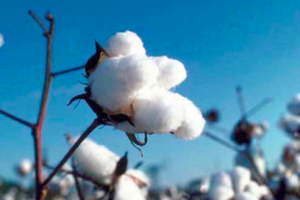 The Government has framed a draft legislation that aims to set up a system to collect accurate data on cotton production and stock availability with various stakeholders of the industry.
The Government has framed a draft legislation that aims to set up a system to collect accurate data on cotton production and stock availability with various stakeholders of the industry.
In view of the commercial importance of the natural fibre crop, a basic and important issue that has become a matter of concern among policy makers, researchers and industry was the reliability of data on cotton production and its stock in the possession of various stakeholders of cotton distribution system, a senior Textiles Ministry official said.
It was important to have accurate data that provides the basis for research on various issues and policy making and near to the actual figures. “We are in the process of finalising the draft Cotton Trade (Development and Regulation) Bill, 2012. The proposed law will help in drawing realistic cotton balance-sheet. Also, a realistic cotton economy scenario will discourage the distress sale by farmers,” he said.
The Textiles Ministry had also invited the stakeholders’ comments in this regard. “The true and correct data on production and consumption of raw cotton in the natural fibre distribution chain will help the farmers to avail of facilities for borrowing from banks against their produce under the Warehousing (Development & Regulation) Act, 2007,” the official added.
The new law has been drafted against the backdrop of differences in cotton output estimates made by the Textiles Ministry and the Agriculture Ministry for this crop year.
In March, the ban on cotton exports imposed on fears of domestic shortages despite record output in the absence of accurate data lasted only a week. The estimated cotton production during the current season 2011-12 is 347 lakh bales (170 kg each) against an estimated 250 lakh bales of cotton. Exports have reached 115 lakh bales, leaving a closing stock of 25 lakh bales.
Besides, the Government asked the Cotton Corporation of India to build up reserves of 25 lakh bales of cotton this marketing year to ensure smooth supply of the raw material to the cash-starved textile mills.
The Textile Ministry had drafted the new legislation as at present there is no statutory framework for collecting the statistical data on cotton from ginning and pressing factories as well as cotton yarn output from the textile mills. “Due to lack of realistic data, it has become difficult for the Cotton Advisory Board (CAB) to assess production and consumption of raw cotton,” the official said.
Trade and commerce in cotton and its value-added products needed to have a progressive national legislation for promotion, development and effective regulation of cotton. The proposed Bill sought to ensure well-structured supply chain for cotton textiles and facilitate better management of statistical data collection for more effective planning and policy formulation.
Pointing out that there was no legislative support against the price manipulators, the official stressed that there was a need for a statistical monitoring mechanism for assessing production and consumption of raw cotton. The proposed law could integrate with the Collection of Statistics Act, 2008, to assess consumption of raw cotton in the country.
– PTI Economic Service